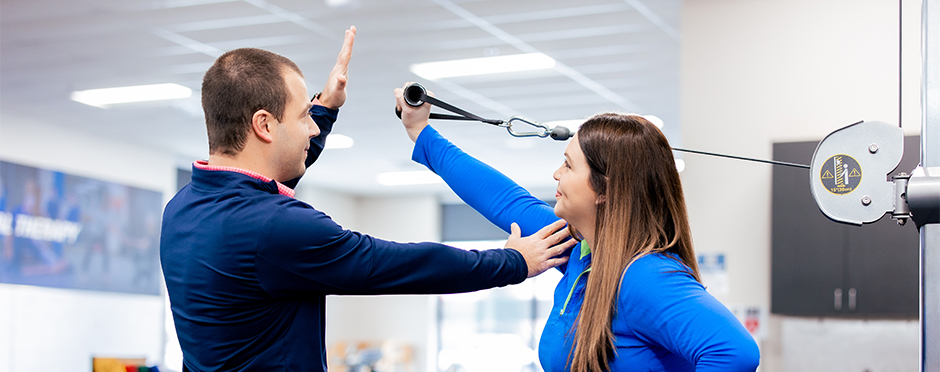
Exploring a Career in PT: Is it Right for Me?
Leave a CommentAs a physical therapist, one of the first questions a patient or student will often ask, “Why did you choose physical therapy?” The answers will vary. Many physical therapists were inspired while they were recovering from a sports injury. Others watched a physical therapist assist family members through medical issues toward an improved quality of life. However, the majority come down to one resounding answer- the call to help others. I wanted to help others and teach. I didn’t want to go to school forever, and wanted a career without blood, guts, or needles. Whatever your motivation may be, keep reading below to better understand how to determine if a career in PT is right for you.
What is physical therapy?
Physical therapists are movement experts who improve the quality of life through prescribed exercise, hands-on care, and patient education. They can work with someone throughout the life span, from premature newborns through senior citizens. People can be referred to physical therapy following surgery, disability, or medical event to get as close to their prior level of life as possible. In many states with direct access laws, no referral is needed so patients can access physical therapists to work on pain, prevent surgery, or even work toward a healthy, injury-preventative lifestyle.1
The many fields of physical therapy:
Physical Therapy is a field of many opportunities. Graduates of PT programs can work in various settings involving pediatrics (children) to geriatrics (senior citizens). Different fields involve orthopedic conditions and neurological conditions, with many overlapping in between. PT can occur in inpatient locations like a hospital, outpatient clinics like your local Athletico, or skilled facilities like aftercare centers and nursing homes. Some areas where you may not expect a physical therapist are a hospital burn unit, for headaches or jaw pain, dizziness, and falls. There are opportunities to specialize in these fields, which involve further education and certifications. Furthermore, if you start to feel a call to a different opportunity, many positions will help you take your skills into a new field of physical therapy. Variety in your career and many pathways to your passion makes physical therapy challenging and rewarding.
The education and qualifications of physical therapy:
Physical Therapy licensing is completed in each state, and all states require graduation from a clinical doctorate program or DPT. Accredited programs are often 2.5-3 years following graduation with a bachelor’s degree. Most programs look at GPA in an undergraduate program, standardized tests such as GRE, observation experiences, and interviews. Physical therapy programs include didactic work in anatomy and physiology, kinesiology, therapeutic skills and techniques related to the human body, history/career of physical therapy, and exercise prescription. Additionally, there are clinical experiences throughout those years to put the didactic information into practice. Most programs end with longer-term clinical rotations to improve exposure to different fields of physical therapy with longer time to build skills and progress patients, similar to how it will be when they graduate and are licensed.1
The career for you:
Physical Therapy is a very rewarding career. Are you driven and motivated to help others? Has a physical therapist inspired you in your own life? Do you feel called to educate and assist others in their goals and healthy lifestyles? Being a physical therapist may be right for you. The earlier you make this determination, the earlier you can make in your education, find the correct program for you, and assist with both academic and/or financial barriers that may make it more difficult to obtain this career. What is the next step? Consider contacting your local or state physical therapy programs with questions regarding education. Questions about the career or the passionate “why” of local clinicians? Contact your Athletico Physical Therapists for a chance to interview or observe with them to understand physical therapy better.
The Athletico blog is an educational resource written by Athletico employees. Athletico bloggers are licensed professionals who abide by the code of ethics outlined by their respective professional associations. The content published in blog posts represents the opinion of the individual author based on their expertise and experience. The content provided in this blog is for informational purposes only, does not constitute medical advice and should not be relied on for making personal health decisions.
1. “Becoming a Physical Therapist.” APTA, https://www.apta.org/your-career/careers-in-physical-therapy/becoming-a-pt.
